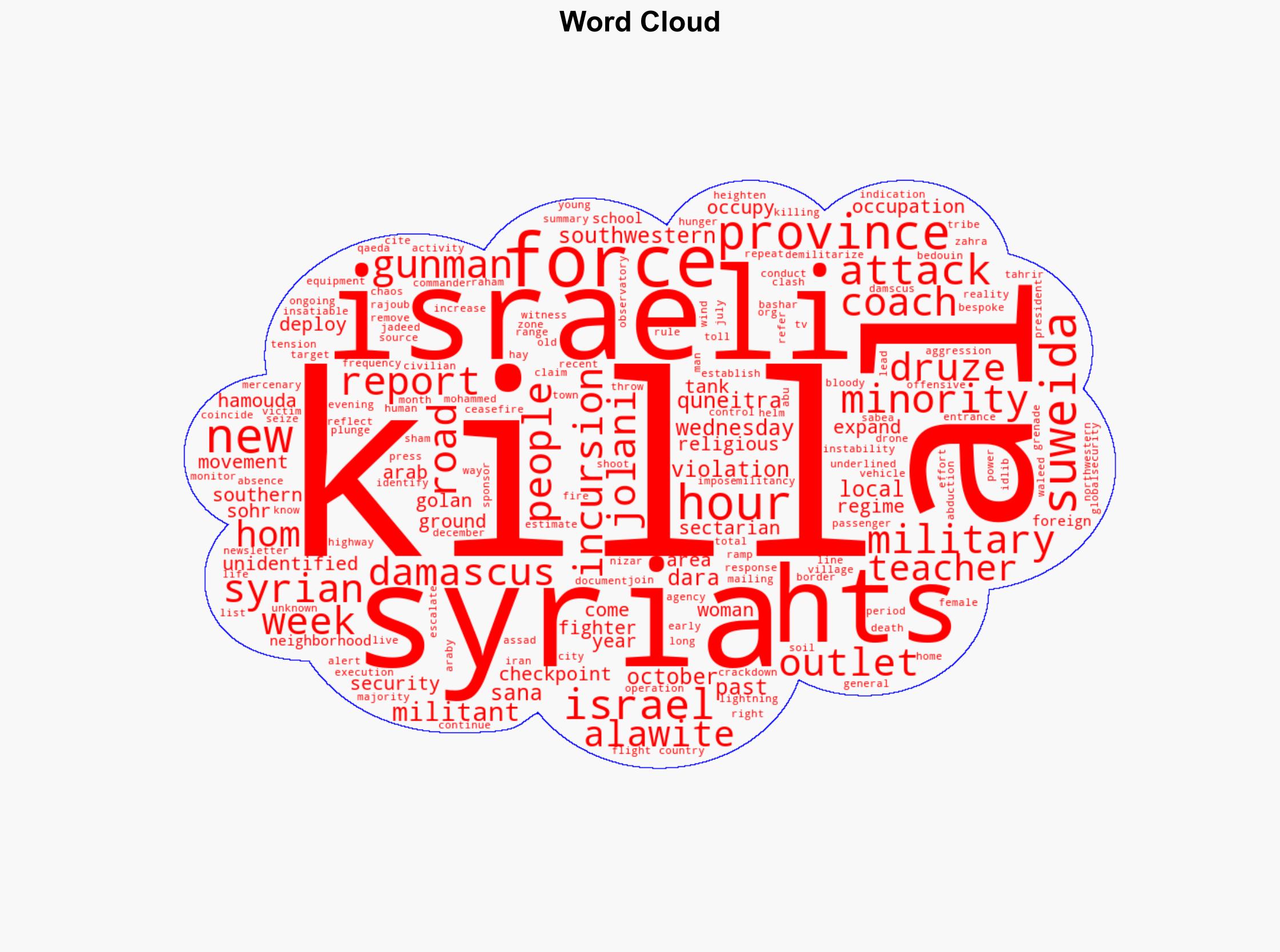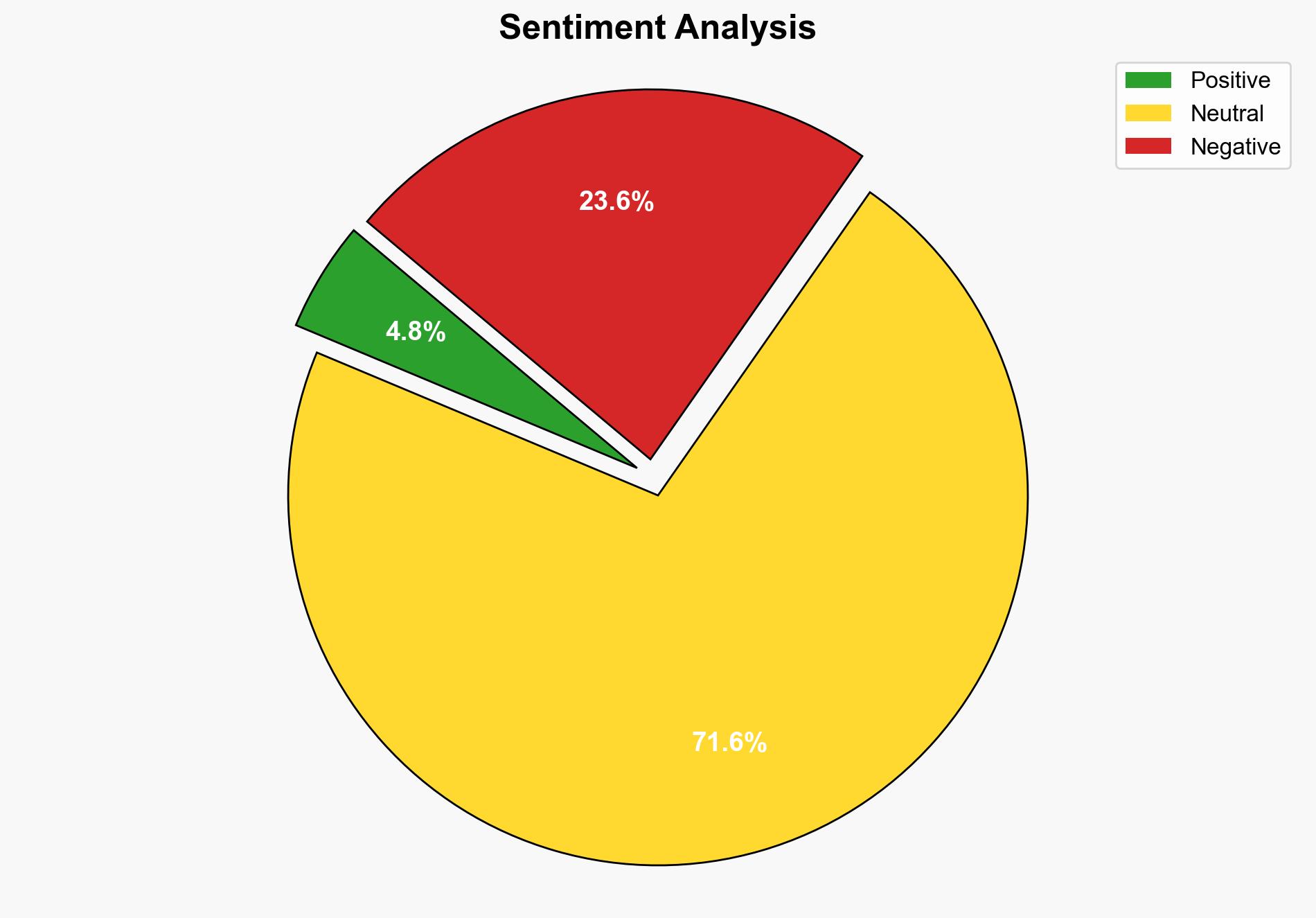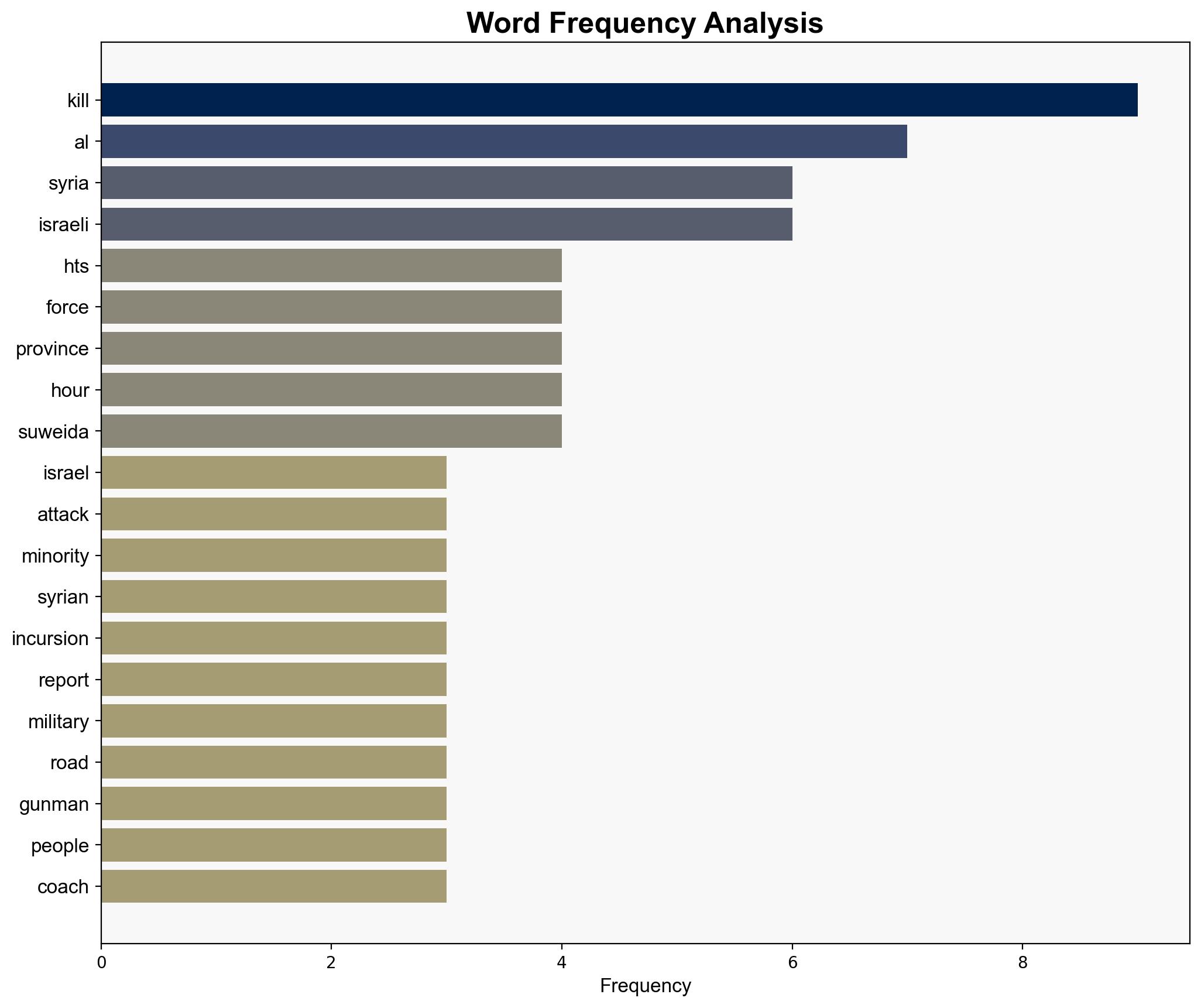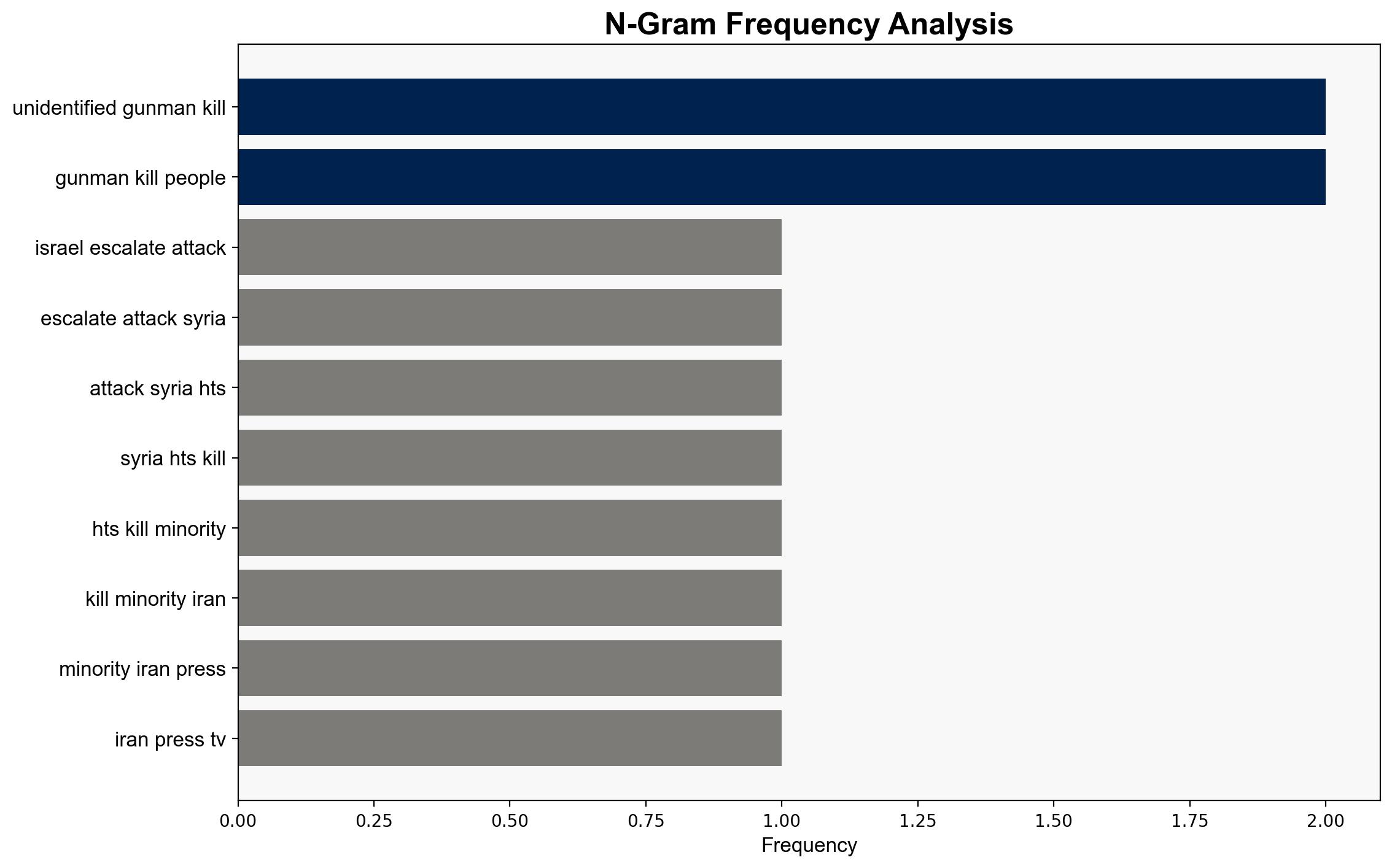Israel escalates attacks on Syria amid HTS killing of minorities – Globalsecurity.org
Published on: 2025-10-30
Intelligence Report: Israel escalates attacks on Syria amid HTS killing of minorities – Globalsecurity.org
1. BLUF (Bottom Line Up Front)
The most supported hypothesis is that Israel’s increased military activity in Syria is a strategic response to perceived threats from HTS and other regional actors, aiming to secure its borders and deter further instability. Confidence level: Moderate. Recommended action: Enhance diplomatic engagement with regional stakeholders to de-escalate tensions and monitor potential retaliatory actions by HTS or other groups.
2. Competing Hypotheses
1. **Hypothesis A**: Israel’s escalated attacks are primarily a preemptive measure to counter HTS activities and prevent spillover of sectarian violence into Israeli territory. This hypothesis suggests that Israel is acting defensively to maintain security and stability along its borders.
2. **Hypothesis B**: Israel’s actions are part of a broader strategy to assert dominance in the region, possibly leveraging the instability caused by HTS to expand its influence in the Golan Heights and beyond. This could involve creating new facts on the ground to strengthen territorial claims.
Using ACH 2.0, Hypothesis A is better supported due to the immediate threat posed by HTS activities and the historical pattern of Israeli responses to similar threats. Hypothesis B lacks direct evidence of expansionist intent in the current context.
3. Key Assumptions and Red Flags
– **Assumptions**:
– Israel perceives HTS as a direct threat to its security.
– HTS activities are destabilizing enough to warrant Israeli military intervention.
– **Red Flags**:
– Lack of direct evidence linking Israeli actions to explicit expansionist goals.
– Potential bias in reporting from sources with vested interests in portraying Israeli actions negatively.
– Inconsistent data on the exact nature and scale of HTS activities in the region.
4. Implications and Strategic Risks
– **Geopolitical Risks**: Escalation of Israeli military actions could provoke retaliatory attacks from HTS or allied groups, increasing regional instability.
– **Psychological Impact**: Heightened tensions may exacerbate sectarian divisions, leading to further violence against minorities.
– **Cascading Threats**: Increased military presence could lead to unintended confrontations with Syrian or Iranian forces, complicating diplomatic relations.
5. Recommendations and Outlook
- Enhance intelligence-sharing with allies to improve situational awareness and preempt potential threats.
- Initiate diplomatic dialogues with regional powers to address security concerns and reduce the likelihood of conflict escalation.
- Scenario Projections:
- Best Case: Successful de-escalation through diplomatic channels, leading to a reduction in military activities.
- Worst Case: Intensification of hostilities resulting in broader regional conflict.
- Most Likely: Continued low-level skirmishes with intermittent diplomatic efforts to stabilize the situation.
6. Key Individuals and Entities
– Abu Mohammed al-Jolani
– HTS (Hay’at Tahrir al-Sham)
– Syrian Observatory for Human Rights (SOHR)
7. Thematic Tags
national security threats, counter-terrorism, regional focus, geopolitical strategy





